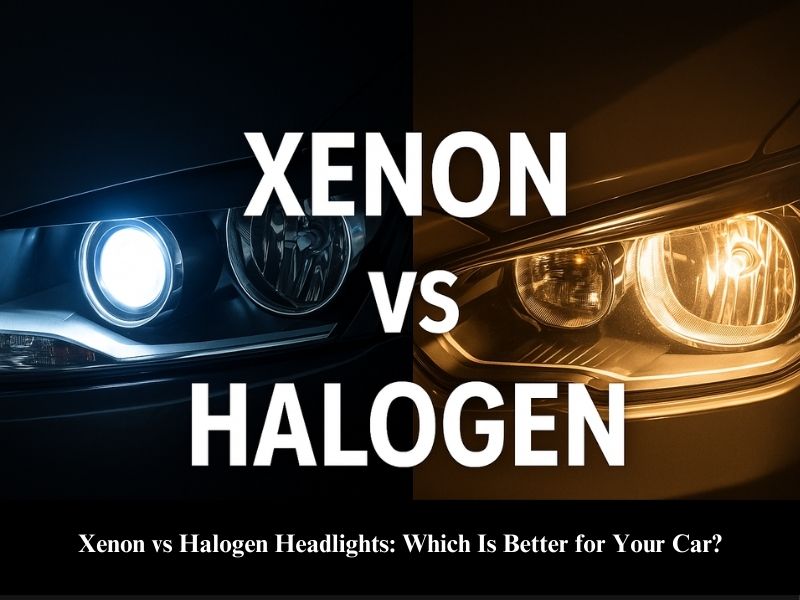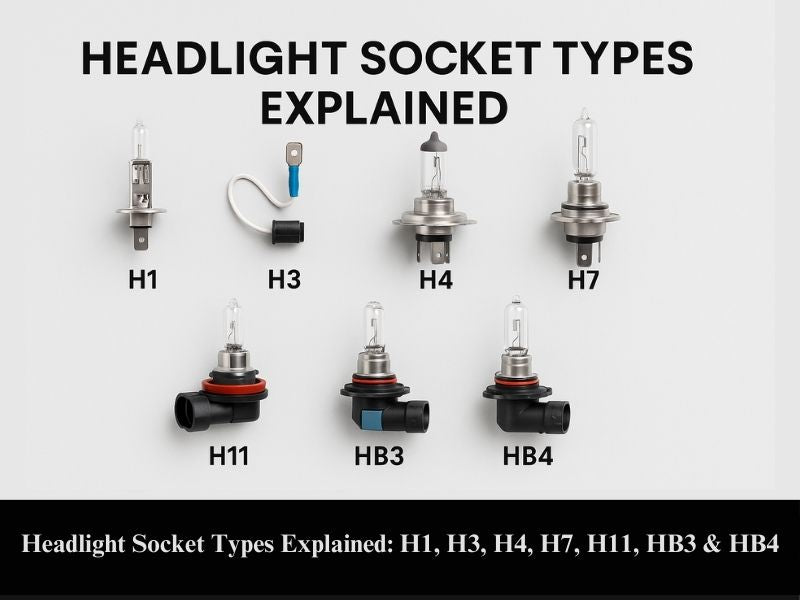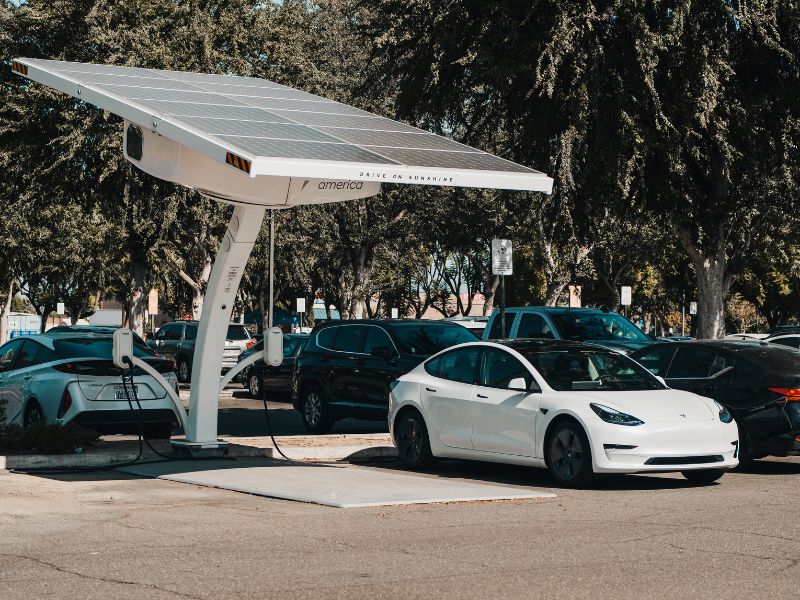Are you thinking about switching to an electric vehicle (EV) but unsure if it's the right move? With the automotive world changing fast, deciding to go electric can be overwhelming.
This guide explores everything you need to know in 2024 to help you answer the question: "Is an Electric Vehicle Right for Me?" You may be worrying about range, charging stations, and environmental impact. But don't worry! We aim to make things clear amidst the electric car revolution. Join us as we dive into EVs and figure out if they're the right choice for your driving lifestyle.
So, without further ado, let’s get started…
What Are Electric Vehicles?
Electric vehicles (EVs) are automobiles powered by electric motors rather than traditional internal combustion engines. They use rechargeable batteries to store electricity, which powers the motor to propel the vehicle.
There are two main types:
- Fully electric vehicles (BEVs) that solely use electricity for propulsion. Battery electric vehicles (BEVs) rely on batteries and electric motors instead of a gas tank and internal combustion engine. Sometimes, they're also called "plug-in vehicles," distinguishing them from plug-in hybrid electric vehicles (PHEVs). BEVs operate solely on electricity and don't emit exhaust from burning fuel.
- Plug-in hybrid electric vehicles (PHEVs) that can be run by combining electricity with a traditional gas combustion engine. Here, when the battery of a PHEV is nearly empty, the gasoline engine kicks in to provide power, although some models can run solely on electricity. Similar to battery electric vehicles (BEVs), the battery of a PHEV can be charged when the vehicle is not in use.
As technology progresses and spreads, electric vehicles are becoming increasingly common on our roads. But why are they becoming so popular? It's not just about innovation; it's about moving towards a greener future.
The Pros and Cons of Owning an Electric Vehicle
You may be thinking of purchasing an electric vehicle (EV) for your next ride. Here’s what you need to know about the advantages and drawbacks of owning one.
Pros of Selecting Electric Vehicles
1.Environmental Benefits
Electric vehicles (EVs) offer significant environmental advantages that are changing the way we think about driving:
- Zero Tailpipe Emissions: EVs do not emit pollutants from their tailpipes. They do not emit pollutants like carbon dioxide (CO2), nitrogen oxides (NOx), and particulate matter (PM) during operation. This means that every mile you drive contributes positively to cleaner air.
- Reduced Carbon Footprint: By using electricity instead of gasoline, EVs help reduce your overall carbon emissions.
2.Lower Operating Costs
Electric vehicles (EVs) generally have lower operating costs compared to traditional gasoline vehicles, offering long-term financial benefits:
- Fuel Savings: Since electricity is typically cheaper than gasoline per mile. Thus, EV owners can save money on fuel.
- Fewer Maintenance Requirements: EVs have fewer moving parts than internal combustion engine vehicles, resulting in lower maintenance costs over time. With no need for oil changes and fewer components to replace or repair, EV owners can enjoy additional savings in maintenance expenses throughout the vehicle's lifespan.
3.Energy Efficiency:
Electric motors are inherently more efficient than internal combustion engines. They can convert a higher percentage of the energy stored in the battery into motion, resulting in better mileage and energy savings for EV owners.
This efficiency translates to fewer energy losses during operation. Thus, allows EVs to travel farther on a single charge compared to the equivalent amount of energy in gasoline.
Cons of Selecting Electric Vehicles
1.Limited Range:
Despite improvements in battery technology, many electric vehicles still have limited driving ranges compared to their gasoline counterparts. Their travel range can cover anywhere from 50 to 330 miles on a single charge. This limitation can be a concern for drivers who frequently travel long distances or live in areas with limited charging infrastructure.
While some EVs offer a decent range, others may require more frequent charging stops, which can inconvenience drivers on longer journeys. However, It depends on the model and battery capacity.
2.Charging Infrastructure and Range Anxiety
One of the biggest concerns potential EV owners face is charging infrastructure and the fear of running out of power, known as range anxiety:
- Availability of Charging Stations: While the number of charging stations is increasing, there are still areas with limited coverage, particularly in rural or less populated areas, making it more difficult for EV owners to find convenient charging locations.
- Charging Time: Charging an EV can take much longer than refueling a gasoline car, especially if a fast charger isn't available. This can take anywhere from 30 minutes to 12 hours, depending on the type of charger used, especially when using standard Level 2 chargers. This can lead to longer wait times for drivers, particularly on longer trips.
3.Higher Upfront Cost:
Electric vehicles often come with a higher initial purchase price compared to traditional gasoline vehicles. While the price gap is narrowing as technology advances and economies of scale improve, EVs still tend to be more expensive upfront.
However, it's worth noting that over the vehicle's lifetime, the lower operating and maintenance costs of EVs can offset this higher initial investment.
Additionally, various government incentives and rebates are available in many regions to help offset the upfront cost of purchasing an EV, making them more accessible to consumers.
7 Personal Factors That Need to Consider Before Switching to an Electric Vehicle
It's essential to consider several personal factors to ensure that they align with your needs and lifestyle before switching to an electric vehicle (EV).
1.Driving Habits: Evaluating Your Daily Commute and Travel Needs
Think about how you usually drive. Consider
- How far you usually go each day,
- How often do you take long trips,
- Check whether there are places to charge your car along your usual routes.
Knowing these things will help you figure out if an electric car can go far enough for what you need. If you drive a lot every day or take long trips often, you'll want to make sure the electric car can handle it. And if there aren't many places to charge your car where you usually go, that's something to think about too.
Understanding how you drive will help you decide if an electric car can work for you.
2.Charging Accessibility:
Check if there are places to charge your car near where you live or go often. You need to consider whether you can easily find places to charge your car, like at home or in public places. This is important, especially if you live in a rural area or a place with fewer charging spots.
If there aren't many charging stations nearby, it might be harder for you to use an electric car.
So, make sure you can easily charge your car before deciding to get one.
3.Budget: Understanding the Financial Implications
Think about how much money you have and how much you're willing to spend on an electric car. Even though electric cars can cost more when you first buy them, think about how much money you might save later on gas and repairs.
Over time, electric cars can be cheaper to run and fix than regular cars.
So, even if the upfront cost is higher, it might save you money in the long run. Therefore, you must consider your budget carefully before deciding whether to buy an electric car.
Available Tax Credits and Incentives
To make electric vehicles more attractive, governments offer various incentives:
- Federal Tax Credit: The federal government offers a tax credit of up to $7,500 for the purchase of qualifying EVs. However, this credit is subject to phase-out once an automaker sells over 200,000 eligible vehicles. It's essential to check the current status of this credit for specific EV models.
- State and Local Incentives: Many states and local governments offer additional incentives for EV purchases, such as rebates, tax credits, or exemptions from certain taxes or fees. These incentives vary by location, so it's worth researching what's available in your state or city.
- Utility Company Rebates: Some utility companies offer rebates or special rates for EV owners to encourage the adoption of electric vehicles. These incentives can help offset the cost of charging your EV at home.
4.Vehicle Options:
When exploring electric vehicle (EV) options, it's crucial to research the available models to find one that fits your needs and preferences:
- Size and Features: Consider the size of the EV that best suits your lifestyle, whether you need a compact car for city driving or a larger SUV for family trips. Additionally, evaluate the features offered by different models, such as advanced safety technology, infotainment systems, and interior amenities.
- Driving Experience: Test drive EVs to experience their driving dynamics firsthand. Pay attention to factors like acceleration, handling, and overall comfort to ensure a satisfying driving experience.
- Battery Range: Evaluate the battery range of each EV model to ensure it meets your daily driving needs. Consider factors such as your typical commute distance and how often you travel long distances. Choose a model with a range that provides sufficient coverage for your regular driving habits.
- Charging Speed: Research the charging capabilities of each EV, including the types of chargers it supports and the time it takes to charge the battery. Consider whether fast-charging options are available for convenient top-ups during long trips or on-the-go charging needs.
- Incentives and Rebates: Look into available incentives and rebates for purchasing an EV, such as federal tax credits, state rebates, or utility company incentives. These financial perks can help offset the upfront cost of buying an EV and make it a more affordable option.
5.Home Charging Space:
When considering home charging for your electric vehicle (EV), assess if you have a dedicated parking space available for installing a charging station. This space could be in your garage, driveway, or another designated area.
Home charging adds significant convenience to EV ownership, allowing you to recharge your vehicle overnight while you sleep. This ensures your EV starts each day with a full battery, providing ample range for daily driving without relying on public charging stations.
Additionally, home charging is cost-effective, as electricity rates are often lower during off-peak hours. Having a home charging setup also offers peace of mind, knowing your EV is always ready for your next journey without the need to search for a charging station elsewhere.
6.Resale Value:
When considering the purchase of an electric vehicle (EV), it's essential to investigate the resale value and depreciation rates compared to traditional vehicles. While EV technology is advancing quickly, understanding the potential future value of your EV is crucial for long-term financial planning.
Researching the resale value of EVs in comparison to traditional vehicles can provide insight into how much your EV might be worth when you decide to sell it.
Additionally, examining depreciation rates can help you gauge how quickly the value of your EV may decrease over time. By understanding these factors, you can make informed decisions about your EV purchase and ensure it aligns with your long-term financial goals.
As of April 2024, the average price of a used(1- to 5-year-old) electric vehicle (EV) in the US has seen a significant decrease of 31.8% over the past year, resulting in a loss of $14,418. This contrasts with the average price of a used internal combustion engine vehicle, which has only decreased by 3.6% over the same period.
In February 2024, the average price of a used EV was $30,904, slightly lower than the $31,153 average price of a used gas car. [Source: a recent study by iseecars.com ]
7.Environmental Impact:
Considering the environmental impact of your vehicle choice is crucial, especially in light of recent data. By reflecting on your environmental values, you can determine the role you want your vehicle to play in reducing carbon emissions and promoting sustainability.
Opting for an electric vehicle (EV) can significantly contribute to these goals by lowering your carbon footprint and supporting cleaner air quality. With EVs, there are no tailpipe emissions during operation. Thus leading to reduced greenhouse gas emissions and improved air quality.
By choosing an EV, you can align your transportation choices with your commitment to environmental stewardship, contributing to a more sustainable future for generations to come.
EV Models and Market Trends For 2024
In recent years, the electric vehicle (EV) market has seen significant growth and diversification, with an expanding range of models catering to various consumer preferences. Let's delve into the current landscape of popular EV models and key market trends shaping consumer choices:
Popular EV Models:
- Tesla Model 3: Tesla is a top pick globally, known for its long-range and advanced tech. People love its sleek design and the fact that there are many places to charge it.
- Chevrolet Bolt EV: This one's practical and affordable, with a roomy interior and good range. It's great for everyday driving in the city.
- Nissan Leaf: A trusted option, especially for those looking for something reliable and budget-friendly. It's been updated to offer a better range and features.
- Ford Mustang Mach-E: This one blends the Mustang brand with electric power. It's sporty, performs well, and has a versatile SUV layout.
Market Trends:
- Longer Driving Range: People want EVs that can go further on a single charge. Models with over 200 miles of range are becoming more common, easing worries about running out of power.
- Performance Matters: EVs are now known for being fun to drive, not just eco-friendly. Models with quick acceleration and responsive handling are gaining popularity.
- Better Pricing: EV prices are getting more competitive, thanks to cheaper batteries and government incentives. This makes them more appealing to buyers.
- Brand Trust: Brands are working hard to build trust in the EV market. Reputation, reliability, and good support after purchase are key factors influencing buyers' decisions.
Final Thoughts
Deciding if an electric vehicle (EV) is right for you in 2024 involves weighing several factors. While EVs offer environmental benefits and potential long-term savings, practical challenges like limited range and charging infrastructure need consideration.
However, improvements in technology and incentives are making EVs more accessible.
It’s crucial to understand your driving habits, budget, and available incentives before concluding to purchase an EV. Despite challenges, market trends show promising developments like longer driving ranges and competitive pricing.
By assessing personal needs and staying informed, you can make informed decisions about transitioning to EVs and contributing to a cleaner, more sustainable future.
Key Points
- EVs contribute to cleaner air and lower carbon emissions, aligning with sustainability goals.
- With lower fuel and maintenance costs, EV ownership can lead to significant long-term savings.
- Despite improvements, some EVs still have limited driving ranges, which may not suit all driving habits.
- Access to charging stations remains a concern, especially in rural areas, affecting convenience and range anxiety.
- EVs typically have higher upfront costs, although decreasing prices and incentives help offset this barrier.
- Federal and state incentives, including tax credits and rebates, can make EVs more affordable for consumers.
- Factors like driving habits, charging accessibility, and budget play a crucial role in determining EV suitability.
- EV market growth is evident, with diverse models offering longer ranges, competitive pricing, and improved performance.
- Reputation, reliability, and post-purchase support influence consumer confidence in EV brands.
- Transitioning to EVs contributes to a cleaner, more sustainable transportation landscape, promoting environmental stewardship.
FAQs
1. What Is the Average Charging Time for an Electric Vehicle?
Charging times can vary widely based on the type of charger used. Level 1 chargers (standard household outlets) generally take the longest, while Level 3 chargers (DC fast chargers) can charge an EV battery to 80% in as little as 30 minutes.
2. How Often Do Electric Vehicle Batteries Need to Be Replaced?
Electric vehicle batteries typically last between 10 to 20 years, depending on usage and care. Most manufacturers offer warranties that cover battery life for a certain number of years or miles, whichever comes first.
3. Can Electric Vehicles Be Used for Long-Distance Travel?
Yes, electric vehicles can be used for long-distance travel, especially as the number of fast-charging stations increases. Planning your route to include charging stops is essential, and many modern EVs come equipped with navigation systems that can help you locate charging stations along the way.
4. What Are the Environmental Benefits of Electric Vehicles?
Electric vehicles offer significant environmental benefits, including zero tailpipe emissions, which means they do not emit pollutants that contribute to smog and poor air quality. Additionally, they are often powered by renewable energy sources, further reducing their overall carbon footprint.
5. Are There Enough Electric Vehicle Charging Stations Available?
The availability of EV charging stations is increasing rapidly. Many governments and private companies are investing in expanding the charging infrastructure to support the growing number of EVs on the road.
6. What Incentives Are Available for Electric Vehicle Buyers?
Many governments offer tax rebates, incentives, and grants to make purchasing an EV more affordable. Incentives can include reductions in sales tax, income tax credits, and even rebates for installing home charging equipment.
7. How Do Electric Vehicles Perform in Cold Weather?
Electric vehicles can experience reduced battery efficiency in extremely cold weather, which can decrease the overall range. However, many EVs come equipped with battery thermal management systems to help mitigate these effects.
8. Can Electric Vehicles Be Charged at Home?
Yes, electric vehicles can be charged at home using either a standard 120V outlet (Level 1 charging) or a 240V outlet (Level 2 charging). Most EV owners install a home charging station for faster and more efficient charging.
9. What Should I Consider Before Buying an Electric Vehicle?
Before buying an electric vehicle, consider your daily travel needs, availability of charging stations, initial costs vs. long-term savings, and the environmental benefits. Assessing these factors will help you decide if an EV aligns with your lifestyle and driving habits.




